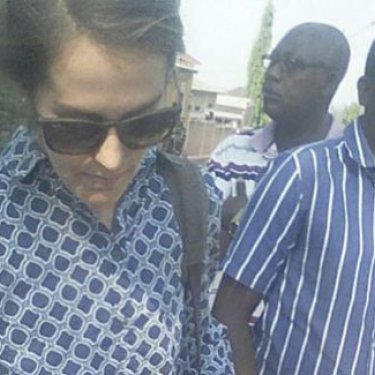Burundian regime launches new media clampdown

The Burundian authorities have unleashed a major new assault on free speech in the past few days, arresting journalists and censoring media outlets that might criticize President Pierre Nkurunziza’s authoritarian regime.
An order issued on 24 October by Pascal Barangadyie, the Minister of Interior and Patriotic Training, announced the provisional closure of five civil society and human rights groups for “being liable to disturb order and state security.” They include the Burundian Union of Journalists (UBJ), which has repeatedly condemned media freedom violations since the political crisis began in May 2015. Other human rights organisations had ben suspended the day before.
A communiqué issued the same day by Karenga Ramhadani, the head of the National Communication Council (CNC), announced an additional series of measures violating freedom of information.
It announced firstly that “Karadiridimba” (They Who Progress), a programme on Radio Isanganiro in which the Burundian diaspora express their views, was being suspended for a month for broadcasting “a song that does not conform to media professionalism and democratic and ethical values.” The song’s Kirundi-language title means “human rights for journalists.”
Senate speaker Révérien Ndikuriyo has meanwhile just launched a new community radio station that is also an outlet for the views of members of the Burundian diaspora, albeit pro-government ones. It was Ndikuriyo who caused a controversy a year ago when he recommended “smashing” the capital’s opposition neighbourhoods after a meeting at the Bujumbura city hall was recorded without his knowledge.
The CNC communiqué also announced that Buja FM, which used to be called Radio 10, was being suspended for a month and was banned from henceforth using its new name. The offshoot of a Rwandan radio station, Buja FM had adopted its new name in an attempt to escape persecution by the authorities. It is already currently subject to a broadcasting ban.
Finally, the communiqué reiterated that it is prohibited for any media outlet to employ a Burundian or foreign journalist whose name is not on the national media register. By giving the government complete control over who can be a journalist in Burundi, this ban constitutes a grave violation of pluralism of opinion.
“These new curbs on freedom of expression and information confirm that the government has opted for even more authoritarianism, that it is cutting itself off from any views different from its own and that it is increasing the isolation of the Burundian population, which was already denied access to almost any objective reporting,” said Cléa Kahn-Sriber, the head of RSF’s Africa desk.
“The criminalization of journalists and groups that are the lifeblood of any society shows that Burundi’s leaders are much more interested in holding on to power than in the fate of their fellow citizens. We urge the authorities to remember their political and democratic obligations and to reopen the space for civil society.”
The announcements came just a day after soldiers arrested US journalist Julia Steers and Burundian journalist Gildas Yihundimpudu, who was working as her fixer, as Steers was doing a report in Mutakura, the Bujumbura district that was the epicentre of a wave of protests against President Nkurunziza in the spring of 2015.
Steers was handed over to the US embassy after the CNC had verified her accreditation, but Yihundimpudu and their Burundian driver, who was also arrested, were held overnight at the headquarters of the National Intelligence Service (SNR).
Police chief Pierre Nkurukiye told Radio France Internationale that Nkurukiye is still facing charges despite having been released. The authorities accuse Nkurukiye, who also works for the BBC, of not being registered with the CNC. He is also charged with “attempting to destroy evidence of crimes committed by insurgents” in connection with a mass grave near the spot where he and Steers were arrested. The mass grave was discovered a few months ago.
Police arrested Voice of America journalist Fidélité Ishatse as she was doing a report on microfinance in the southeastern town of Bukemba on 7 October and held her for several hours on the grounds that she had not notified the local authorities of her presence.
Other journalists also continue to be arrested and subjected to intimidation. And there is still no news about the fate of Jean Bigirimana, a journalist who has been missing since 22 July. RSF is calling for an investigation into his disappearance.
Burundi is ranked 156th out of 180 countries in RSF’s 2016 World Press Freedom Index, after falling 11 places as a result of crackdown on the media and civil society that began in 2015.



